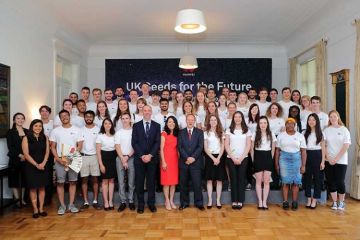Allies of Baltimore’s historically black universities are persisting with a legal challenge against the state’s funding and policy priorities, just as the city’s struggles are becoming a focal point of national racial divisions.
Students and alumni of four public historically black colleges and universities – Morgan State, Coppin State, Bowie State and the University of Maryland Eastern Shore – first brought the case in 2006, accusing Maryland of handing more popular academic programmes to its traditionally white institutions.
A federal court judge agreed that actions by the University of Maryland system had perpetuated its racial segregation and ordered an outside specialist to craft remedies. The state appealed, and the court urged mediation. The mediation deadline has now expired, putting the case back before the appeals court.
That deadline arrived just as Donald Trump, in a bid to demean Elijah Cummings, the Baltimore-born lawmaker now leading congressional investigations of the US president, began posting a series of tweets attacking Baltimore as “disgusting”, “dangerous” and “last in almost every major category” of well-being.
The tweets touched off another extended round of national debate over Mr Trump’s use of racially divisive language. They also prompted a group of Baltimore’s civic leaders and university presidents, including those on both sides of the HBCU litigation, to write an open letter defending Baltimore and Mr Cummings, and rejecting attempts to denigrate the city.
“This is a city where people not only want to live, but love to live,” wrote the presidents, who included Morgan State University’s David Wilson and the heads of the University of Maryland, Baltimore County and the University of Baltimore. UMBC and the University of Baltimore are now racially diverse institutions led by African Americans, but they are not historically black.
By many key measures, Baltimore has indeed been long-suffering, with rates of unemployment, crime and poverty well above national averages. Mr Trump has faulted Mr Cummings and other Democrats for the city’s blight, while others have blamed underlying economic and social policies long supported by Mr Trump and his political allies.
Dr Wilson traced the problems to the 1960s and 1970s, when the state of Maryland, like much of the country, was coping with the baby boomer generation of students. Rather than build up Morgan State and Coppin State University – its two existing downtown institutions – the state pursued predominantly white alternatives, expanding Towson University, buying and reviving the University of Baltimore and creating UMBC on land alongside highways just outside the city.
The effort to dilute the traditionally black universities has left Maryland running six public universities within a 10-mile radius of Baltimore, said Jon Greenbaum, an attorney for the plaintiffs. Universities do help a local economy, he said, but “the problem is you’ve got too many – the resources are split up”.
Dr Wilson and the plaintiffs contend that this has left Baltimore without a public research powerhouse that educates people who come from the city and will stay there.
The HBCU alumni successfully argued in their court case that Maryland officials intentionally stripped from the HBCUs important degree courses, especially in engineering. Maryland officials went so far, Mr Greenbaum said, as to send engineering professors to UMBC from the state’s flagship campus in College Park to help UMBC grow.
Maryland’s governor has offered as much as $100 million (£83 million) over 10 years to settle the case. But the plaintiffs want the state to help build dozens of high-demand majors at the HBCUs, and they estimate that the cost of doing that would be several times greater than the suggested amount.
Register to continue
Why register?
- Registration is free and only takes a moment
- Once registered, you can read 3 articles a month
- Sign up for our newsletter
Subscribe
Or subscribe for unlimited access to:
- Unlimited access to news, views, insights & reviews
- Digital editions
- Digital access to THE’s university and college rankings analysis
Already registered or a current subscriber?











